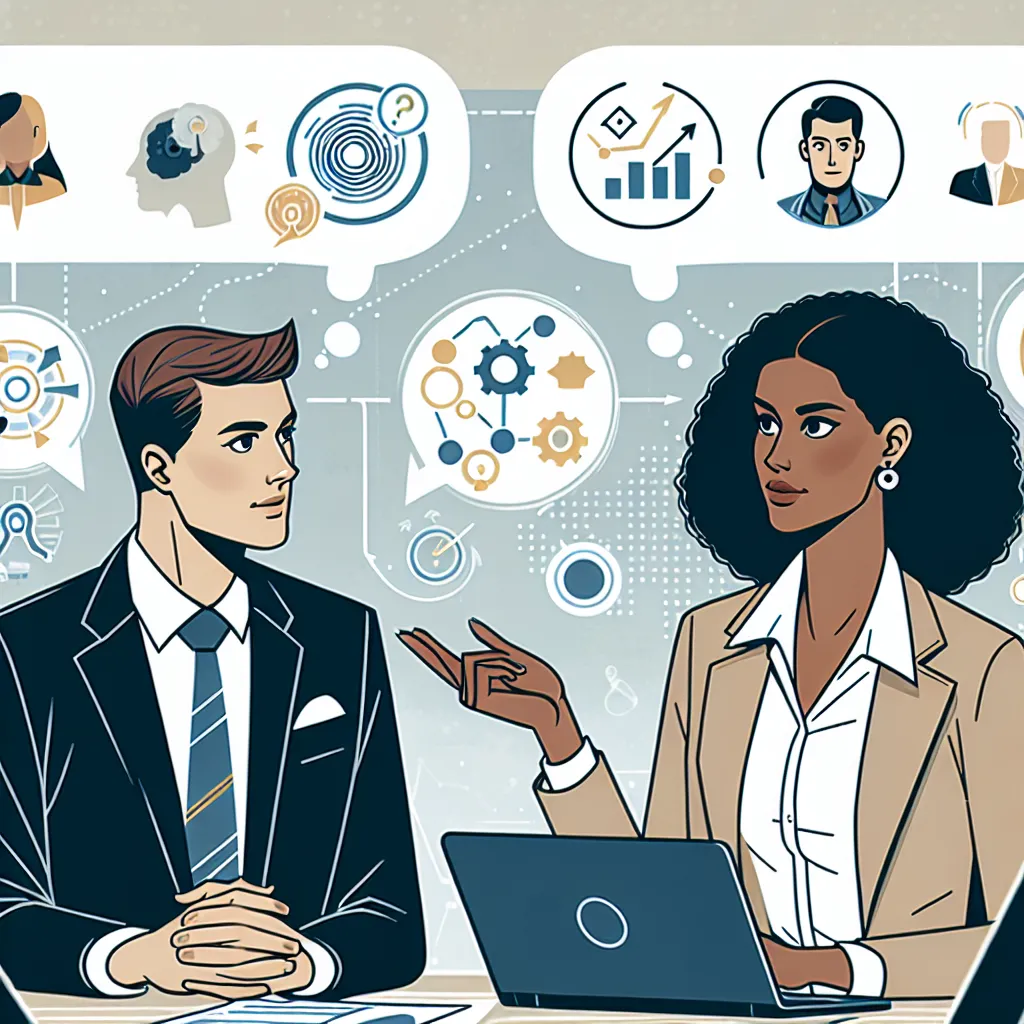Are you gearing up for a second interview? Congratulations on making it this far in the hiring process! A second interview is an excellent opportunity to showcase your skills and prove you’re the ideal candidate for the position. In this guide, we’ll explore effective strategies to help you prepare for and excel in your second interview.
Understanding the Importance of a Second Interview
A second interview indicates that you’ve impressed the hiring team in your initial meeting. Now, they want to delve deeper into your qualifications and assess your fit within the company culture. This stage is crucial as it often involves meeting with higher-level executives or potential team members.
What to Expect in a Second Interview
Second interviews typically differ from first interviews in several ways:
- More in-depth questions about your experience and skills
- Discussions about specific projects or challenges you might face in the role
- Meetings with additional team members or department heads
- Potential skills assessments or practical tests
- More detailed conversations about company culture and your career goals
 Preparing for a second job interview
Preparing for a second job interview
Key Strategies for Second Interview Preparation
1. Review Your First Interview
Reflect on your initial interview:
- What questions were asked?
- Which areas did you feel confident in?
- Were there any topics you wish you had elaborated on?
Use these insights to anticipate potential follow-up questions and prepare more comprehensive responses.
2. Research the Company More Thoroughly
Dive deeper into the company’s:
- Recent news and developments
- Long-term goals and strategies
- Competitors and market position
- Company culture and values
This knowledge will help you align your responses with the company’s objectives and demonstrate genuine interest in the role.
3. Prepare for More Specific Questions
Expect more targeted questions about:
- Your technical skills and how you’ve applied them in past roles
- Specific scenarios or challenges you might face in this position
- Your leadership style or teamwork abilities
- Long-term career goals and how they align with the company
Practice articulating your experiences and skills in relation to the job requirements. For guidance on effectively describing your skills, check out our article on how to describe your skills in an interview.
4. Prepare Thoughtful Questions
Having insightful questions ready demonstrates your genuine interest and engagement. Consider asking about:
- The team’s current projects and challenges
- Opportunities for professional development
- The company’s future plans and how the role contributes to them
For more ideas, explore our guide on questions to ask in an English interview.
5. Be Ready to Discuss Salary and Benefits
While it’s best to let the employer bring up compensation, be prepared to discuss your salary expectations if asked. Research industry standards and have a range in mind based on your experience and the role’s requirements.
Handling Specific Second Interview Scenarios
Addressing Follow-Up Questions
Be prepared for interviewers to dig deeper into topics from your first interview. For example:
Interviewer: “In our last meeting, you mentioned leading a project that increased efficiency by 30%. Can you walk us through the specific steps you took to achieve this?”
Your Response: “Certainly. First, I conducted a thorough analysis of our current processes, identifying bottlenecks. Then, I implemented a new project management software and trained the team on its use. We also established weekly check-ins to address issues promptly. These steps, combined with streamlining our approval process, led to the 30% efficiency increase over six months.”
Demonstrating Problem-Solving Skills
Expect questions that assess your ability to handle real-world scenarios:
Interviewer: “How would you approach a situation where a key team member unexpectedly left in the middle of a crucial project?”
Your Response: “I would first ensure a smooth handover of their responsibilities. I’d meet with the team to redistribute tasks based on individual strengths and adjust our timeline if necessary. Simultaneously, I’d work with HR to expedite the hiring process for a replacement. In the interim, I’d be prepared to take on additional responsibilities to keep the project on track and maintain team morale.”
For more insights on showcasing your decision-making abilities, visit our article on how to talk about your decision-making abilities.
 Handling challenging interview questions
Handling challenging interview questions
Addressing Gaps or Concerns
Be prepared to address any concerns that may have arisen from your first interview:
Interviewer: “We noticed you haven’t had experience with [specific software]. How do you plan to overcome this gap?”
Your Response: “While I haven’t used that specific software, I have extensive experience with similar tools. I’m a quick learner and have already started familiarizing myself with its features through online tutorials. I’m confident that with my adaptability and technical background, I’ll be proficient in no time. In previous roles, I’ve successfully learned new systems within weeks of starting.”
Common Mistakes to Avoid in Second Interviews
-
Overconfidence: While it’s great to feel positive about making it to the second round, avoid appearing arrogant or assuming you’ve already got the job.
-
Inconsistency: Ensure your responses align with what you said in the first interview. Contradictions can raise red flags.
-
Lack of new information: Don’t simply repeat what you said in the first interview. Expand on your previous answers and provide new insights.
-
Failing to build rapport: Second interviews often involve meeting potential colleagues. Make an effort to connect with everyone you meet.
-
Not asking about next steps: Always inquire about the timeline for the hiring decision and any further steps in the process.
Additional Tips for Success
-
Bring extra copies of your resume and any requested documents.
-
Dress appropriately, even if the interview is casual. It’s better to be slightly overdressed than underdressed.
-
Arrive early to compose yourself and review your notes.
-
Follow up with a thank-you note to each person you interviewed with, mentioning specific points from your conversation.
-
Be prepared for a longer interview. Second interviews can sometimes last several hours and may include lunch or a tour of the office.
Conclusion
Preparing for a second interview requires thorough research, self-reflection, and practice. By following these strategies, you’ll be well-equipped to showcase your skills, demonstrate your fit for the role, and make a lasting impression on the hiring team. Remember, a second interview is not just about the company evaluating you – it’s also your opportunity to assess if this is the right move for your career.
For more interview preparation tips, don’t forget to check out our guide on how to prepare for an accounting interview, which offers valuable insights applicable to various professional fields.
Good luck with your second interview! We’d love to hear about your experiences or any additional tips you might have. Feel free to share in the comments below.




